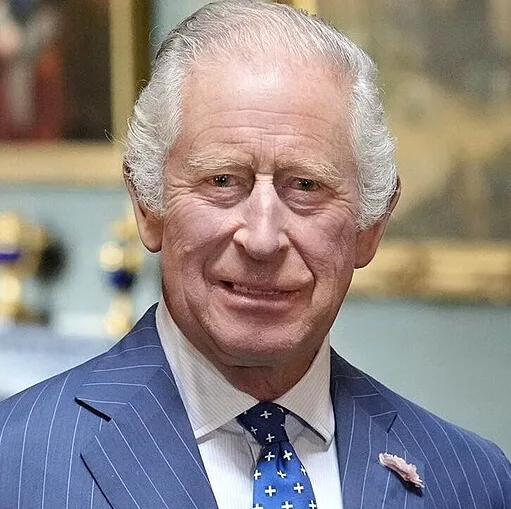Despite the strained relationship, the monarch’s illness intensifies efforts to bond with Prince Harry’s children
King Charles, engulfed in “great sadness” over his strained relationship with his grandchildren Archie and Lilibet, vows to never sever ties with Prince Harry. This commitment, driven by his recent cancer diagnosis, highlights the monarch’s deepening desire to build a relationship with his American-based grandchildren.
Royal expert Ingrid Seward reveals in her book, “My Mother and I: The Inside Story of the King and Our Late Queen,” that family has always been paramount to King Charles. Reflecting on his fragmented childhood due to his parents’ busy schedules, the King feels a profound sadness over the limited interaction with Archie and Lilibet. This emotional weight has only increased with his illness, making the desire to connect with his grandchildren more poignant as he faces the reality of his limited time.
Embed from Getty ImagesInsiders report that despite the fallout from Prince Harry and Meghan Markle’s decision to step back from royal duties and their subsequent revelations, King Charles remains committed to forging a bond with Archie and Lilibet. The King has expressed his discontent with only interacting through video calls, having met Archie, five, only a few times and Lilibet, two, just once. His recent efforts to be more involved include sending Lilibet a heartfelt gift and card on her birthday.
Elaborating on the King’s determination, Seward explains, “Charles does not want a FaceTime relationship with his son’s children. He wants to know them and be involved in their lives while they are still young enough to learn from his wisdom. His cancer diagnosis has made this all the more urgent.”
The 75-year-old monarch, who recently attended D-Day commemorations in Normandy, has been advised to cut back on engagements due to his health. However, this has only intensified his focus on family. Sources close to the King describe him as “keener than ever” to concentrate on family and make up for lost time.
Prince Harry, Meghan Markle, and their children live in Montecito, California, following their decision to step away from royal life in 2020. Relations with the Royal Family have been tense following high-profile interviews and Harry’s memoir, “Spare.” Despite these tensions, King Charles’ commitment to his grandchildren remains unwavering.
According to insiders, King Charles cherishes his bond with Prince William’s children – Prince George, Princess Charlotte, and Prince Louis – and aims to foster similar connections with Archie and Lilibet. His wife, Camilla, also plays a significant role in encouraging these family ties. At 76, she supports Charles’ increased determination to spend time with his grandchildren.
An insider disclosed, “The King is absolutely committed to being present in all of his grandchildren’s lives. He values family above everything and whatever the course of his relationship with his son, he would never be content with just seeing his grandchildren on the odd video call.”
Upon learning of his father’s illness, Prince Harry made a swift return to the UK. Despite the long journey, the encounter between Harry and King Charles was brief, lasting only half an hour. After their meeting, Harry told ABC in the US, “I love my family. The fact that I was able to get on a plane and go and see him and spend any time with him, I’m grateful for that.”
As King Charles navigates his illness, his commitment to family and desire to build meaningful relationships with all his grandchildren remain steadfast. This period of reflection has underscored the importance of family bonds for the monarch, emphasizing his enduring dedication to his role as a grandfather.
Analysis:
King Charles’ intensified efforts to connect with his grandchildren Archie and Lilibet amidst his cancer diagnosis have significant implications from multiple perspectives.
From a sociological perspective, the King’s actions highlight the enduring importance of family bonds, even amidst personal and public challenges. His desire to forge relationships with his grandchildren underscores a universal theme: the value of family and intergenerational connections. This emphasis on family can resonate with many, illustrating how personal circumstances often drive individuals to prioritize relationships.
Politically, the King’s commitment to maintaining ties with Prince Harry’s family amidst strained relations reflects a broader message of reconciliation and unity. This approach can be seen as a way to heal public rifts within the Royal Family, promoting an image of solidarity. It demonstrates a willingness to bridge divides and foster harmony, which can positively impact public perception of the monarchy.
From an emotional perspective, the King’s actions reveal the profound impact of personal health challenges on one’s priorities. His cancer diagnosis has brought a sense of urgency to his desire to connect with his grandchildren. This narrative can evoke empathy and understanding from the public, highlighting the human aspect of the monarchy.
Culturally, the emphasis on family ties reflects traditional values that resonate with many people. The King’s efforts to connect with his grandchildren align with cultural expectations of elder family members passing on wisdom and fostering close relationships. This reinforces the cultural significance of family as a cornerstone of society.
From a psychological perspective, the King’s determination to build relationships with Archie and Lilibet can be seen as a coping mechanism in facing his illness. By focusing on family, he finds purpose and fulfillment, which can be crucial for mental well-being during challenging times. This approach underscores the therapeutic value of nurturing personal connections.
In conclusion, King Charles’ commitment to connecting with his grandchildren amidst his cancer diagnosis has profound implications across various dimensions. It highlights the universal importance of family, promotes a message of reconciliation, and reflects traditional cultural values. Additionally, it reveals the emotional and psychological significance of prioritizing personal relationships, especially in the face of health challenges. This multifaceted impact underscores the enduring relevance of family bonds in shaping personal and public narratives
